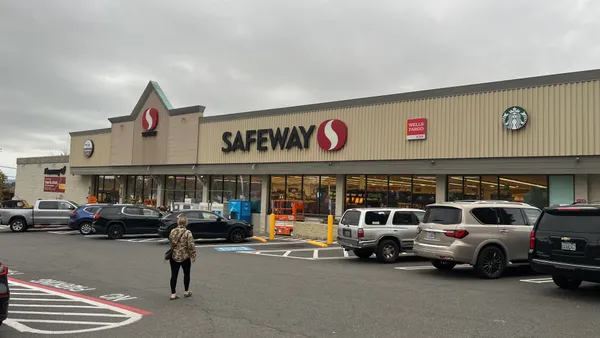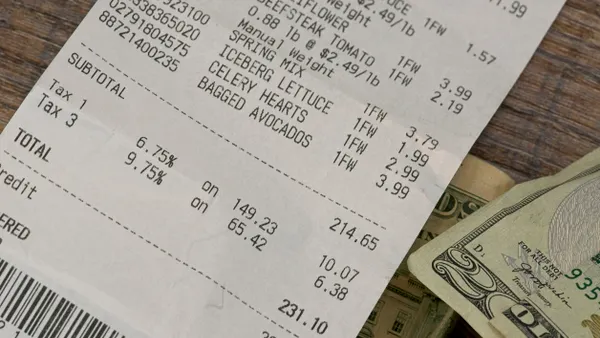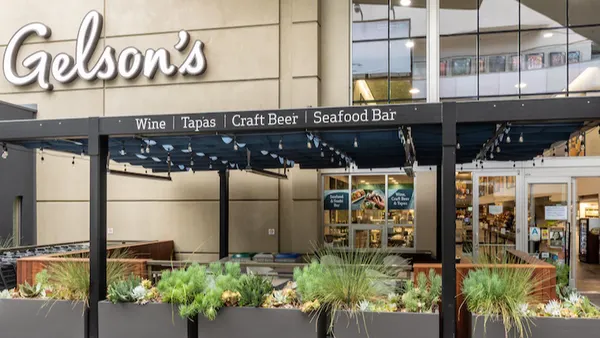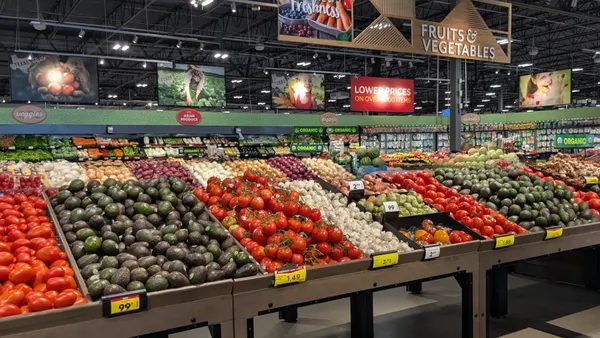UPDATE: Nov. 30, 2020: DoorDash has launched a roadshow for its initial public offering, according to a press release. It will provide 33 million shares of Class A common stock, with an IPO price expected to be between $75 and $85 per share. DoorDash is aiming for a valuation of $25 billion to $38 billion, The Wall Street Journal reported.
Dive Brief:
- DoorDash filed paperwork with the U.S. Securities and Exchange Commission related to a proposed initial public offering of Class A stock, according to a press release.
- The amount of shares to be offered and the price range have not been determined. The company expects to list its stock on the New York Stock Exchange under the symbol DASH.
- The company, which is worth $16 billion as of June, initially submitted a confidential draft registration statement in February, and would become the fourth company offering restaurant delivery to go public, after Grubhub, Waitr and Uber.
Dive Insight:
While DoorDash has come under scrutiny for its lack of profitability, its S-1 filing shows that its financials have been improving this year, likely thanks to increased demand for food delivery from the pandemic. Total orders increased to 543 million during the first nine months of 2020 compared to 181 million during the year ago period, according to the filing.
DoorDash increased its revenue to $1.9 billion during the nine months ending Sept. 30, 2020, a 226% increase compared to the $587 million in revenue during the year ago period. Net loss also improved to a negative $149 million during the first nine months of the year compared to negative $533 million during the year ago period. Its earnings before interest, taxes, depreciation and amortization margin also improved to a positive 5% during the first nine months of 2019 compared to a negative 63% during the year ago period.
Despite posting more positive numbers this year, the company noted that it has a "history of net losses." Even though it generated $23 million in net income during the quarter ending June 30, 2020, the company has incurred losses each year since its founding in 2013. In the filing, DoorDash said it expects to increase spending, especially to grow its business and operate as a public company, and says it may not be able to maintain or increase profitability in the future.
The company expects to use funds to expand its platform, develop or acquire new platform features, grow into new markets and increase its sales and marketing efforts. DoorDash said it also faces considerable competition in the segment not just from other food delivery aggregators, but the likes of pizza delivery companies like Domino's and other merchants that operate their own delivery fleets.
"Fifty-eight percent of all adults and 70% of millennials say that they are more likely to have restaurant food delivered than they were two years ago, and we believe the COVID-19 pandemic has further accelerated these trends," the company said in its S-1 filing. "We believe the improving value proposition of local logistics platforms, including DoorDash, with wider selection than ever before, increasing convenience, and lower consumer fees has contributed to increasing off-premise consumption, and we expect this trend to accelerate, particularly in today’s convenience economy."
The company also had a meteoric rise over the last two years, going from 17% market share in the U.S. in January 2018 to 50% in October 2020, according to the filing. In particular, it grew its market share in suburban markets 35% during the same time period, according to data it cited from Edison Trends. Suburbs are a large key to growth for third-party delivery companies, drawing in new consumers, restaurant partners and expanding its reach outside urban cores.
That growth, boosted by the pandemic, could stall however. "The circumstances that have accelerated the growth of our business stemming from the effects of the COVID-19 pandemic may not continue in the future, and we expect the growth rates in revenue, Total Orders, and Marketplace [gross order value] to decline in future periods," it said in the filing.
While becoming a public company will only put additional scrutiny on its financials and profitability, the company doesn’t appear to be wavering from its commitment to support local communities. On Thursday, it committed $200 million toward its Main Street Strong Pledge over the next five years to support its Dashers, local merchants and local communities. During the pandemic, it also offered loans to Black-owned restaurants through a partnership with Kiva, cut commissions by half for local restaurants and partnered with BlueVine to offer streamlined access to Paycheck Protection Program Loans.
"When the whole WeWork debacle happened, people looked towards DoorDash and said, 'Look, this is probably the next one because they are spending so much money,'" Bobby Mollins, research analyst, lodging and restaurant team at Gordon Haskett, said. "Fast forward to today, and they've been completely wrong. It's one of those things where you will see them continue to spend money on certain things, but they will have to eventually slow it down to focus strictly on profitability."











